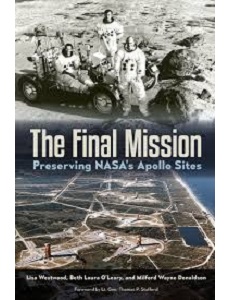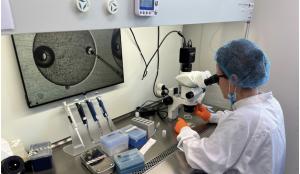Written by three academics with professional interests in archaeology and preservation, this book considers the historical importance of preserving sites and artefacts related to the Apollo lunar programme - both on Earth and on the Moon. This is not a new topic but the authors have brought an academic rigour and serious commitment to space archaeology that was previously absent. For example, two of them co-founded the Apollo 11 Preservation Task Force, a group of ‘preservation professionals’ dedicated to the designation of ‘Tranquillity Base’ as a World Heritage Site.
As the authors point out, the public remembers Neil Armstrong and his fellow travellers but has “long since forgotten the vanishing sites that reflect the historic ‘culture of Apollo’”. Beginning with an introduction to the context of this ‘Apollo culture’, they discuss rocket testing sites and other facilities that “lie unmarked, undocumented, or crumbling in ruins, failing to achieve status and recognition” for their historic roles. Subsequent chapters consider threats to space heritage sites, legal frameworks for historic preservation and some ‘success stories’ in space preservation (which of course includes Apollo capsules and other equipment in museums around the world).
This is an academic but readable book. It has a 12-page reference section and an 11-page double-column index and is illustrated with black-and-white photos. Although its subject is not ‘mainstream space’, it should appeal to anyone with a serious interest in space exploration, utilisation and – if these are to remain sustainable – protection. The best way to decide whether the subject is of interest is to consider the question of those first historic footprints on an alien world, made in the lunar dust by Armstrong and Aldrin. If no-one returns to the Moon, they will remain there forever, but what is likely to happen when the first commercial tourists visit Tranquillity Base? Will history be erased in a careless – or, worse, intentional – moment, or will the footprints and abandoned hardware be granted the recognition called for in this book? Only time will tell.











